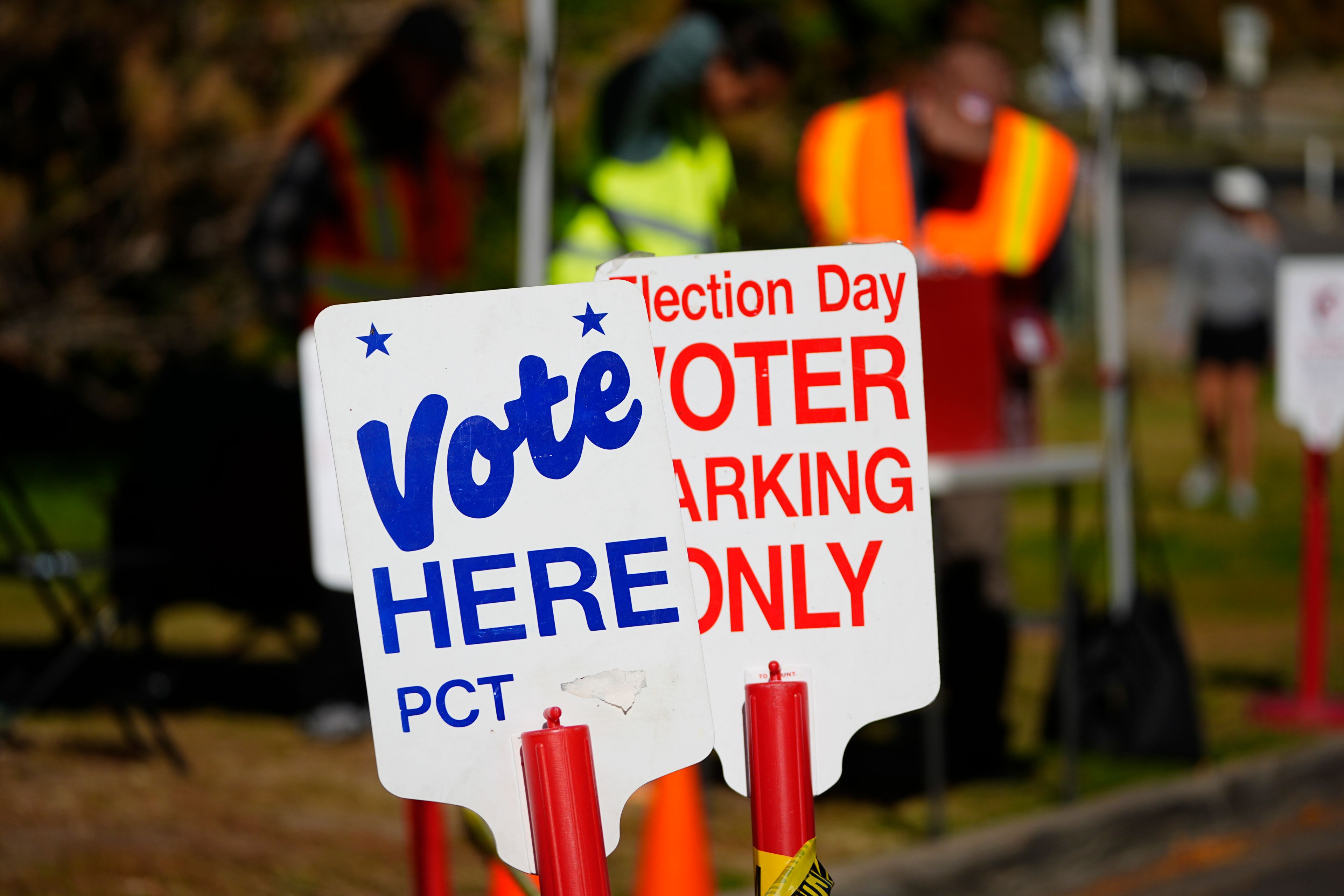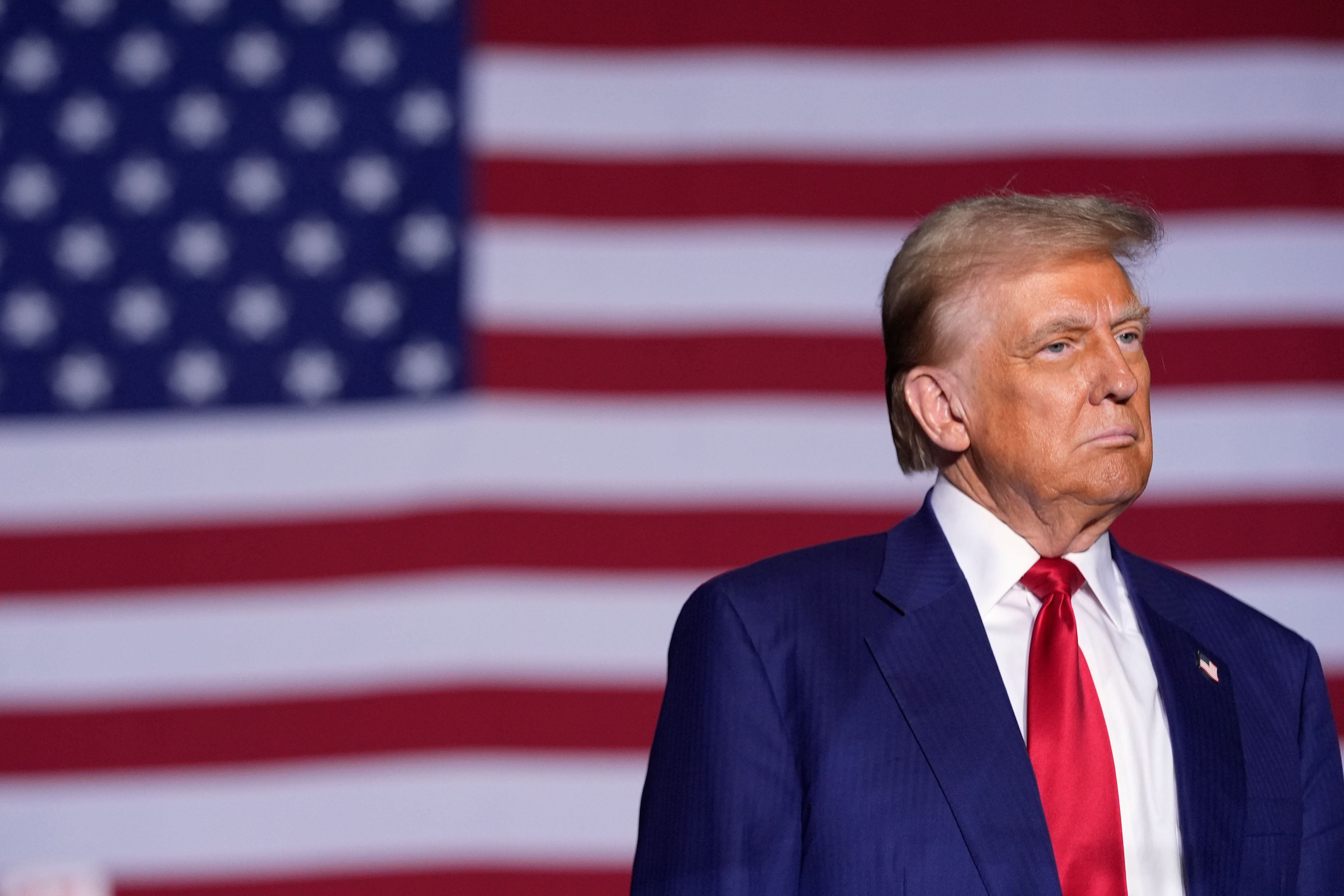Foreign threats to the US election are on the rise, and officials are moving faster to expose them
WASHINGTON (AP) — A presidential candidate's
WASHINGTON (AP) — A presidential candidate's phone is hacked. A fake video falsely shows ballots burned in Pennsylvania. National security officials warn that U.S. adversaries may incite violent protests after Election Day.
These developments — all revealed in the past week — show how Russia, China and Iran have increased the pace of efforts to meddle in American politics ahead of next month's election, just as intelligence officials and security analysts had predicted.
At the same time, officials, tech companies and private researchers have adopted a more aggressive defense by swiftly exposing foreign election threats, highlighting the lessons learned from past election cycles that revealed America's vulnerability to disinformation and cyberespionage.
Officials say the U.S. election system is so secure that no foreign nation could alter the results at a scale necessary to change the outcome. Nevertheless, authoritarian adversaries have leveraged disinformation and cyberespionage to target campaigns and voters while stoking distrust and discord.
Here's what to know as the presidential election approaches:
Russia is the top threat
Russia is the most active and sophisticated nation working to manipulate the U.S. election, using fake websites, state-controlled media and unwitting Americans to spread misleading and polarizing content aimed at undermining confidence in elections.
The Kremlin's disinformation apparatus seizes on contentious issues like immigration, crime, the economy or disaster relief. The goal is to weaken the U.S., erode support for Ukraine as it fights off Russian invaders and reduce America's ability to counter Russia's growing ties to China, North Korea and Iran, officials have said.
Intelligence officials and private security analysts have determined that Russia supports former President Donald Trump, and is using disinformation — sometimes AI-generated — to smear his Democratic opponent, Vice President Kamala Harris. Trump has praised Russian President Vladimir Putin, suggested cutting funds to Ukraine and repeatedly criticized the NATO military alliance.
In one particularly audacious campaign, Russia staged a video that falsely accused Harris of paralyzing a woman in a car crash years ago. Another video made fictitious allegations against Harris' running mate, Minnesota Gov. Tim Walz.
On Friday, the FBI confirmed Moscow's role in creating a third video supposedly showing the destruction of mail ballots in Pennsylvania. Local election officials quickly debunked the video as false.
Russia also has tried to pay American influencers who spread the Kremlin’s preferred narratives. Last month, U.S. authorities accused two Russian state media employees of funneling $10 million to a Tennessee company to create pro-Russian content. The company then paid several popular right-wing influencers, who have said they had no idea their work was being supported by Russia.
Moscow’s campaign won’t end on Election Day. Instead, intelligence officials and private security analysts predict Russia will exploit claims of election irregularities to suggest the results can’t be trusted. A recently declassified intelligence memo said Russia may also encourage violent protests after the election.
“Putin’s aim is to foment chaos, division and polarization in our society,” said Michael McFaul, a former U.S. ambassador to Russia who now teaches at Stanford University.
Russia has rejected claims that it seeks to influence the U.S. election. A message left with Russia's embassy in Washington was not immediately returned Saturday.
Iranian hack-and-leak operations
Iran has been a particularly brazen player in foreign interference this year.
It's accused of hacking Trump campaign associates and offering the stolen communications to media organizations and Democrats in hopes that damaging stories would emerge that could hurt the Republican's prospects. Emails dangling dirt were sent to people associated with President Joe Biden’s campaign, but there’s no indication anyone replied, officials have said.
The Justice Department last month charged three Iranian hackers who remain at large, accusing them of a yearslong operation targeting a vast array of victims.
U.S. officials have described the hacking as part of a broader effort to interfere in an election that Iran perceives as particularly consequential. Iran, they say, has made clear its opposition to the Trump campaign. His administration ended a nuclear deal with Iran, reimposed sanctions and ordered the killing of Iranian Gen. Qassem Soleimani, an act prompting Iran's leaders to vow revenge.
In addition to the cyberoperations, U.S. officials have repeatedly expressed concern about the potential for Iran to carry out violence on U.S. soil against Trump or other members of his administration. Officials in 2022 brought charges in a foiled Iranian plot to kill Trump's national security adviser, John Bolton, and this year charged a Pakistani man with ties to Iran in a plot to carry out political assassinations in the U.S., including potentially of Trump.
Leaders in Tehran also may try to encourage violent protests after the election, according to the declassified intelligence memo. Authorities say Iran also covertly funded and supported protests in the U.S. over Israel's war in Gaza.
Iranian authorities have dismissed allegations that the country is seeking to influence the election. Iran's mission to the United Nations released a statement this week saying, “Iran neither has any motive nor intent to interfere in the U.S. election.”
A neutral China?
U.S. intelligence officials believe China is taking a more neutral stance in the election and is focused on down-ballot races, targeting candidates from both parties based on their positions on issues of key importance to Beijing, including support for Taiwan.
But the Chinese government has for years operated a sophisticated hacking operation targeting all manners of Western life and industry that goes well beyond election influence.
“From city council to president, they want access,” said Adam Darrah, a former CIA political analyst who is now vice president of intelligence at the cybersecurity firm ZeroFox, which tracks foreign online threats.
On Friday, news broke that Chinese hackers as part of a much broader espionage effort had targeted cellphones used by Trump, his running mate JD Vance and people associated with Harris' campaign. It was not immediately clear what data, if any, had been accessed.
A spokesperson for the Chinese Embassy in Washington said they were unfamiliar with the details and couldn't comment but contended that China is routinely victimized by cyberattacks and opposes the activity.
Are these tactics new?
Hardly. Foreign adversaries, including the same ones blamed for meddling now, have sought to interfere in the last several election cycles — with varying degrees of success.
But the U.S. government, blamed for sitting on information about the scope of Russian interference in the 2016 election, has worked this year to aggressively call out foreign threats as part of an effort to reduce their impact and assure Americans that the election is secure.
In 2016, Russian military intelligence officers hacked into the email accounts of Hillary Clinton's campaign chairman and the Democratic Party and released tens of thousands of communications in an effort to boost Trump's successful presidential campaign.
Russia also engaged that year in a huge but hidden social media trolling campaign aimed at sowing discord on hot-button social issues, creating division in the American electoral process and harming Clinton's bid for president.
The antics continued in the 2020 election cycle when a Ukrainian lawmaker described at the time by U.S. officials as an “active Russian agent ” released audio recordings of Democrat Joe Biden, who was then running for president.
That same year, Iranian hackers were blamed for emails purported to come from the far-right group The Proud Boys that officials said were designed to harm Trump's candidacy.
Connect with the Southeast Missourian Newsroom:
For corrections to this story or other insights for the editor, click here. To submit a letter to the editor, click here. To learn about the Southeast Missourian’s AI Policy, click here.












